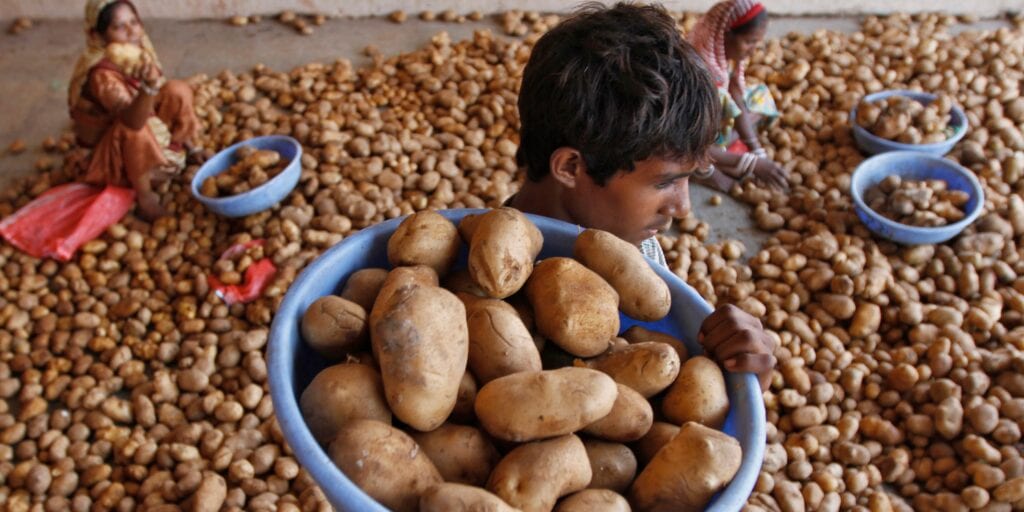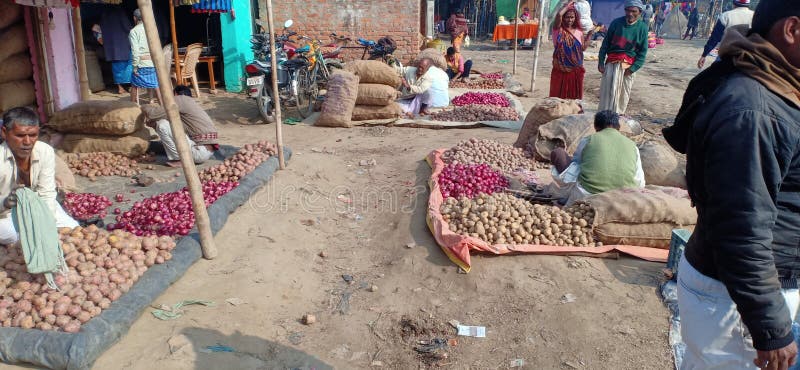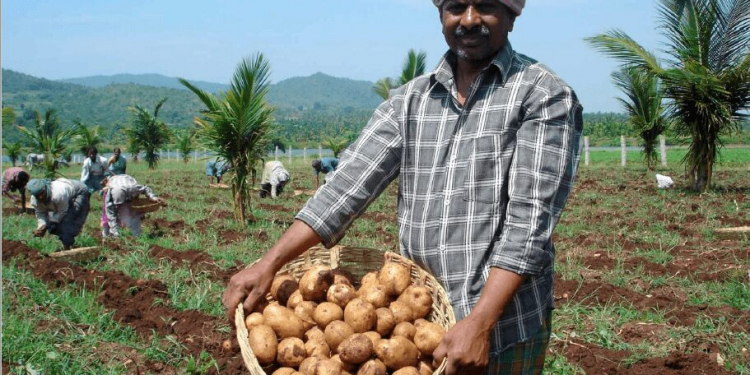Farm experts are of the view that rising prices of essential commodities coupled with wage deflation and increasing joblessness are pushing poor households to the point of distress despite the government’s relief measures.
NEW DELHI : Aloo and pyaz (potato and onion), considered as the poor’s basic vegetables, are getting out of reach now as one needs to shell out at least ₹150 to buy one kg each of these two commodities at a time when the common man is reeling under the COVID-19-induced hardships. Farm experts are of the view that rising prices of essential commodities coupled with wage deflation and increasing joblessness are pushing poor households to the point of distress despite the government’s relief measures. Not only daily wagers and the economically poor section, but middle class families also are finding it hard to manage their kitchen budget with skyrocketing prices of these two commodities since the last few weeks, they said.

Prices of potato and onion have shot up in both wholesale and retail markets of the national capital and other parts of the country because of tight supplies, the reason that the government attributes to damage to the crop due to heavy rains. In Delhi, retail onion prices spiked to ₹80 per kg on October 21 from ₹20 per kg in June while that of potato to over ₹70 per kg from ₹30 in the said period, according to trade data. In Mother Dairy’s Safal outlets, potato was being sold at ₹58-62 per kg in the last week while onion was hardly available in some outlets.
“With my daily earning of ₹150-200, I cannot think of buying aloo and pyaz. What will I feed my family of five members? Other vegetables are equally costlier. How do we survive?” Brij Mohan, a rickshaw-puller at Sadar Bazar, cried.
Mohan, who hails from Bihar, returned to the national capital to restart his life after the COVID-19 lockdown was lifted.
“But earnings are not that great as people are not very keen to take rickshaws these days due to the fear of infection. Somehow I am managing to meet the house expenses. The rise in prices of vegetables has added to my woes,” he said. Sharing a similar ordeal, carpenter Mustakeen who hails from Uttar Pradesh, stated, “Though life has limped back to normalcy in markets but my earnings are still low. On the top of it, potato-onion prices are touching sky-high. What will I feed my children? Cannot buy even aloo and pyaz.”

Mustakeen, who works in Bhogal and Ashram areas of the city, said his hopes of earning extra during Diwali are all dashed to the ground as not many people are interested to get any big carpentry work in this pandemic. Experts, who do not want to be identified, said as long as the price inflationary pressure persists along with wage deflation and increased joblessness, the measures like free distribution of grains to ration card holders will not fully solve the real problems of the common man.
To give relief to the poor, the government has taken several steps. It is distributing additional foodgrains of 5 kg per person for free via ration shops under the Pradhan Mantri Garib Kalyan Yojana till November. The government has also launched new PM Street Vendors’ Aatmanirbhar Nidhi (SVANidhi) microcredit programme and other steps to help the poor to tide over the crisis.
However, Roma Devi, a housemaid working in Nizamuddin area, said: “No matter how much free grains I get from the ration shop, I have to buy at least potato and onion, else what sabzi my family of five will have with rice or roti?”
“My daily aloo consumption is 1 kg. How will I manage now?” she said as she purchased a half kg potatoes at ₹70 per kg from a nearby market. The irony is that India, which was exporting both potato and onion till a few months back, has started importing them now — a situation which experts say the government could have easily avoided and not left the poor to bear the brunt of price rise at a time the pandemic hit them harder like never before.
According to the official data, the country exported 8,05,259 tonnes of onion till June this year while 1,26,728 tonnes of potato till May.Last week, Food and Consumer Affairs Minister Piyush Goyal had said about 7,000 tonnes of onion have already been imported by private traders and 25,000 tonnes more are expected to arrive before Diwali. Also, 30,000 tonnes of potatoes are being imported from Bhutan to boost domestic supply.







